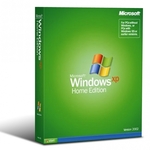I know this operating system is more than 10 years old, but I heard that there are still some hard core followers. OzGameShop has just dropped the price of Windows XP SP3 Home Edition OEM to $29.99 delivered.
Besides, it can be a cheap way to upgrade to Windows 8 Pro later ($40 before 31 Jan 2013 if I remembered correctly).


Thanks for being part of the bot-net! I love all those emails you keep sending me! (/sarcasm off)
Seriously, your PC was probably infected if it was connected to the internet. Most viruses and bot-nets don't noticeably affect or slow your computer, or you'd do something about it. They like to stay "under the radar".